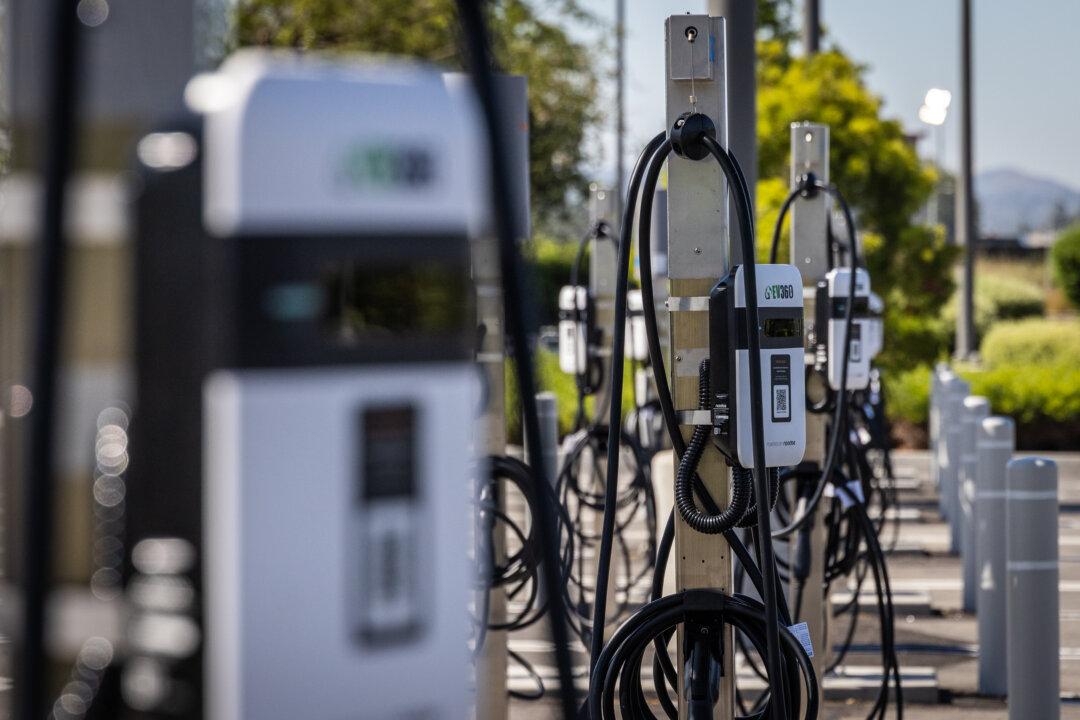Senate lawmakers narrowly passed a Republican-led bill on Nov. 8 that would reverse the Biden administration’s decision allowing it to waive some of the “Buy America” requirements for electric vehicle (EV) charging stations purchased using taxpayer dollars.
The Congressional Review Act (CRA) joint resolution, known as S.J. Res. 38, was introduced by Sens. Marco Rubio (R-Fla.), Roger Marshall (R-Kan.), Rick Scott (R-Fla.), and Kevin Cramer (R-N.D.) earlier this year.




